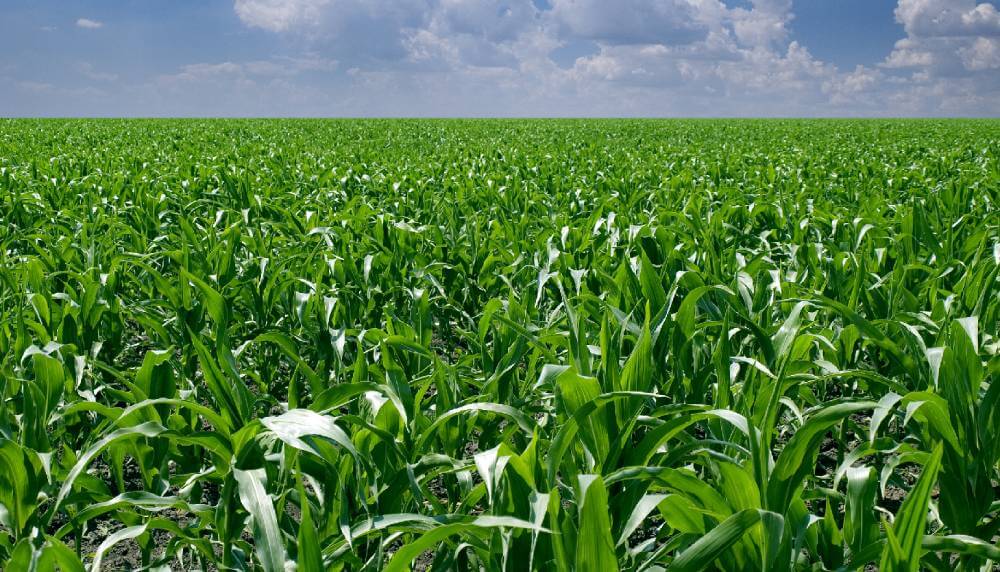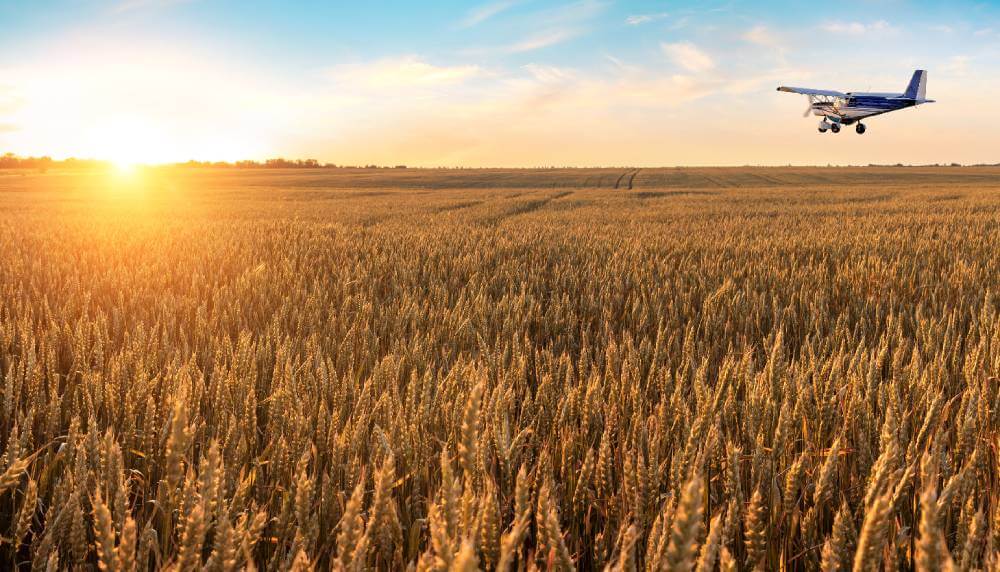Biopesticides: The Healthy Alternative to Plant Protection Products

If Alfred Hitchcock had to shoot “North by Northwest” today again, he’d have to change the scene where Cary Grant is being chased and shot to from an airplane in the middle of a corn field. The original version of the movie shows Grant’s character, Roger Thornhill, running away from an agricultural biplane used to fumigate crops, which drops its whole load to force him out of his hideout among the plants. That’s nearly impossible today, at least in Europe. In 2009, the European Union banned the spraying of pesticides from adapted aircrafts, with just a few exceptions. Why so? Basically, they did it in an effort to limit the use of chemical pesticides in agriculture and reduce their impact on human health and the environment.
The thrill of such a scene in a movie is naturally not enough to perpetuate practices deemed harmful to us and the environment. Over the past few decades, agricultural production has relied on synthetic products, made up in a laboratory, to fight off recurrent pests in our crops and their surroundings. Based on the (rather controversial) premise that pesticides or plant protection products help ensure the availability of healthier and safer foods, farmers from all over the world have massively used them to guarantee a quasi-immediate action against harmful bacteria, insects and fungi. These solutions have indeed boosted production, and allowed to intensively exploit the agricultural land we have available. But the residues left by the substances they contain may have harmful consequences.

The problems of chemical pesticides
The abuse of synthetic pesticides (fungicides, insecticides or nematicides) often leads to the pollution of water resources, the disappearance of beneficial root organisms and the generation of pest resistance to plant protection products. As for human health, quite a few cases of poisoning and other issues related to the immune system have been diagnosed, all of them due to a prolonged exposure to specific substances. The great victims have frequently been field professionals, that is, the farmers.
“The great victims of the abuse of chemical pesticides have often been farmers”
In Europe, the active ingredients allowed in plant protection products have been reduced by over 50% in the last decades. Cases such as glyphosate’s, a popular herbicide that was classified, despite the fierce opossition, as potentially carcinogenic by the World Health Organization in 2015, and declassified again by the European Food Safety Authority that same year, brought the use of chemical pesticides into the spotlight. However, despite so much debate on whether it is as damaging as they say it is, two European countries have actually banned it. The first of them was Austria, whereas Germany has already put a date to its supression: December 31, 2023. In the European Union, it’s currently authorized until 2022, with no guarantee whatsoever that the authorization will be extended. The product is also restricted in the Czech Republic, Italy and the Netherlands, while France is planning to phase it out by 2023. Are we really so dependent on this kind of products? Are they as harmful as they seem? If so, are they so necessary that we should draw a veil over their drawbacks? What are the available alternatives?
The answer is: “No, they’re not so necessary and yes, we do have alternatives”. While they’ve proven to be a quick and effective solution, their consequences are no trifle. Many of those substances, which have been in use for years, have been banned due to their negative effects on human health and the environment. In the case of glyphosate, for example, experts fear that its negative effect might not only be restricted to human health, but it might also affect local plants and, more importantly, insects that are essential for the survival of biological processes such as pollination. But as we said, luckily, pesticides are not so necessary as to forget about everything else. There is indeed an alternative: Biopesticides.
Biopesticides: A low-risk solution

Being based on living organisms, biopesticides can include from fungi to viruses (against insects, mainly), as well as plant extracts. They are classified as low-risk solutions, harmless to the plant’s environment and the natural organisms present in the ecosystem. In addition, they don’t leave residues, which are or might be harmful to humankind.
“Biopesticides are environmentally friendly and don’t leave residues which are harmful to humankind”
At Kimitec, we’ve made great progress in the field of biopesticides, always ensuring that their efficacy equals or even surpasses the efficacy of plant protection products and promoting natural, residue-free crop yields. Currently the international context also favors their expansion, for several reasons:
- Institutional support Many countries are promoting biopesticides at the expense of chemical products, through local regulations. Denmark applies extra tax to plant protection products with the aim of discouraging their use. The European Directive 2009/128 on the use of pesticides calls on all Member States to develop specific programs to encourage this type of solutions, from training activities on their use to the regulation and control of their commercialization and storage. And it was, precisely, that directive the one banning aerial spraying. But most importantly, it specifically urged governments to give priority “wherever possible to non-chemical methods of plant protection and pest and crop management”. Europe’s last related measure, which is already impacting the markets, is the announcement of the “Farm to Fork” strategy in May 2020, which calls for a 50% reduction in the use of chemical pesticides, and a 20% reduction in the use of fertilizers by 2030.
- Social pressure In recent years, the risks posed by synthetic solutions and the consumers’ desire to buy organic products are a recurrent topic. A demand that is now reflected in the entire supply chain. Spain, for example, currently has the highest ratio of organic crops in Europe.
- No harmful effects Biopesticides are considered a low-risk solution and represent a significant share of the pest control market. In addition, they undergo the same comprehensive quality tests as chemicals, so their safety is fully guaranteed. They don’t harm the organisms living underground,and contribute to soil regeneration.
It’s true though, there are some challenges ahead. Regulations are not equally applied across markets, nor public awareness regarding the issues posed by plant protection products is the same in all countries. Europe doesn’t have a dedicated set of regulations for biopesticides, which are still evaluated based on laws conceived for chemicals. Thus, farmers have no access to the natural solutions they need to replace synthetic products. Spain, for example, is the Member State where pesticides are most commonly used, despite the already available biological market, which will reach 6,400 million dollars by 2023. The change is happening though, right as you read.
